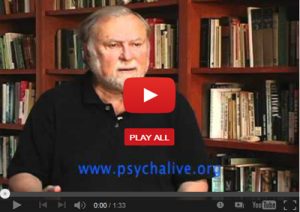Why Therapy is Essential for Treating Addiction
 Most people assume the remedy for recovery involves detox and abstinence from the drugs/alcohol. The truth is, this is only the beginning. Recovery is a lifelong process, one that requires discipline and most importantly intensive treatment and therapy. Addiction is usually a symptom of an underlying issue such as trauma, abuse, grief, and many other mental health disorders. Addiction has been named “disease of the brain”. This complicated idea suggests that the issue stems from the brain. Complex and often confusing, this disease attacks the thinking and behaviors of an individual. Therapy is one of the most useful tools utilized to promote long-term sobriety.
Most people assume the remedy for recovery involves detox and abstinence from the drugs/alcohol. The truth is, this is only the beginning. Recovery is a lifelong process, one that requires discipline and most importantly intensive treatment and therapy. Addiction is usually a symptom of an underlying issue such as trauma, abuse, grief, and many other mental health disorders. Addiction has been named “disease of the brain”. This complicated idea suggests that the issue stems from the brain. Complex and often confusing, this disease attacks the thinking and behaviors of an individual. Therapy is one of the most useful tools utilized to promote long-term sobriety.
There are many different types of therapy integrated into the recovery process. Almost all addiction programs recognize this and have found that there is not a one size fits all method to this approach. Behavioral therapy is perhaps the most effective in treating the root of addiction and preventing cravings and relapse. However, there are many different forms of therapy. The goal is to identify and address fundamental issues the addict may be facing. For centuries, therapy has been used for treating addiction of all sorts.
Matrix Model was developed in the 1980’s during the cocaine epidemic. Originally designed to treat stimulant abuse, this therapy method proved to be overwhelmingly effective. The Matrix Model was intended to be a 16-week program that includes individual therapy sessions, group therapy, relapse prevention, family therapy/education, CBT, DBT, and encouraging 12 Step meetings. Contingency management is another major component of this method as well, rewarding sobriety and avoiding punishment for relapse.
Family Therapy is essential for recovery because not everyone is affected by addiction. The addict does not suffer alone, all members of family and friends are affected by the disease. It is important for the family to be educated on the disease of addiction. It’s not uncommon for individual therapy to include family sessions. The goal is to unify and reunite family members who have been affected. Most addicts will remain in therapy if other members of the family do as well. Healing within the family unit has shown lower relapse rates and higher levels of motivation from the addict through positive reinforcement and support.
Cognitive Behavioral Therapy (CBT) is a short-term psychotherapy that promotes problem-solving skills. Cognitive behavioral therapy primarily focuses on solutions rather than revisiting old problems. This method of therapy encourages the development of new coping strategies, changing detrimental cognitive thinking, and problem-solving skills. CBT has also been used in treating co-occurring disorders as well.
Dialectical Behavior Therapy (DBT) works to address co-occurring disorders simultaneously. Enhancing behavioral skills, through mindfulness and emotional regulation, is the primary focus of DBT. This type of treatment encourages stress management, decreases impulsivity, and aims to strengthen self-esteem through discipline and structure.
Trauma Therapy is also a vital form of therapy used for addiction treatment. Recent studies have shown that half of the participating adults had experienced some form of trauma in their childhood. Unresolved trauma is a leading cause of substance abuse. Addicts turn to drugs/alcohol to self-medicate the pain of PTSD. Trauma therapy requires the patient to identify the trauma by creating a safe environment for the individual to share painful experiences. Once the patient has identified trauma the therapist will incorporate tools useful in helping to process, change old belief systems, and promote healing.
According to NIDA, every addict requires a recovery plan that best suits their individualized therapeutic needs. It is important therapy promotes a safe and positive collaboration between the addict and therapist. Avoiding condemnation and confrontation, the therapist must empathize with the patient in order to establish a secure and trustworthy relationship. Education in therapy is also quintessential for recovery, it is important the addict understand that addiction is a disease and not a matter of willpower. Through setting expectations the individual will set goals to accomplish throughout the duration in therapy which will ultimately encourage taking further steps towards positive behaviors. Therapy must also employ cognitive behavioral change through identifying triggers and impulsivity which retrains the brain’s functionality. Family therapy will help to establish boundaries and healthy communication between the family and the addict in hopes of getting a guide for a strong sober support. Evidence has proven that recovery is a lifelong process that requires maintenance and consistent spiritual and individual growth. Therapy is an effective tool used in cultivating the foundation for long-term recovery.
Tags: addiction, addiction to substances, addictions, fight addiction, therapy








